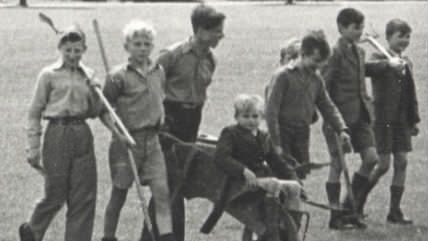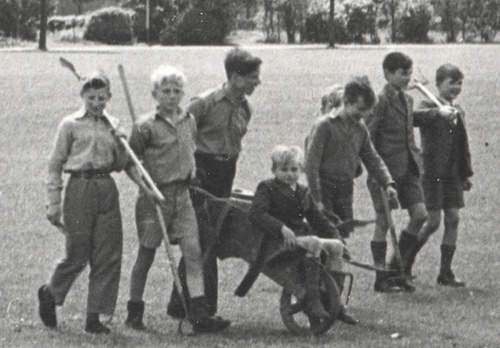America Needs More Free-Range Kids
Grit made America great.

Are you a real man (or woman)? Do you have "grit"?
Compare yourself to the man on the $20 bill: Andrew Jackson, our seventh president.
During the Revolutionary War, Jackson volunteered to fight. He was just 13 years old at the time. The British captured him and made him a servant for British officers. When one ordered Jackson to clean his boots, Jackson refused, and the officer slashed Jackson's hand with a sword. When Jackson became president, he showed off the scar.
Jackson had grit.
Do your kids have that much grit today? I doubt it. Parents now try to protect kids from all danger. In New York City, some won't let teenagers go to school by themselves.
Lenore Skenazy, author of "Free-Range Kids," thinks that's absurd.
"Free-range kids are kids we believe in," she told me. "They can do things on their own."
Once she allowed her own 9-year-old to ride the subway alone. After she wrote about that, she was labeled "World's Worst Mom." Really. Google "world's worst mom." Skenazy's name comes up.
"Free-Range Kids" promotes events like "Take Our Children to the Park and Leave Them There Day." Skenazy says leaving kids in the park without adult supervision teaches them grit. Kids get used to bugs, rocks and a lack of constant supervision. They become leaders by discovering how to organize their own lives without parents bossing them around.
And they are not likely to be kidnapped. The horror of what happened to the three women in Cleveland makes all of us more frightened of sexual assaults and other threats. Skenazy says that today's parents are so frightened that only 6 percent allow young kids to play outside unsupervised. But the risk of harm is small, and we put our kids at greater risk, says Skenazy, if we don't allow them the freedom to learn from their own mistakes -- to acquire grit.
It shouldn't surprise me that parents want to shelter their kids from all risk. The parents themselves live in a society where risk is less and less acceptable. We expect regulations to protect us from accidents. We expect police to protect us from every imaginable criminal threat. We demand welfare, unemployment insurance and bailouts to protect every level of society from economic risk. When something goes wrong, we sue.
It wasn't always like this.

Our country's founders left relatively safe places to tough it out in the wilderness, to turn what a character in a John Wayne movie called "empty land used for nothin'" into ranches and farms. Doing that required long days spent hunting, plowing, fighting off enemies, digging in through cold winters, sometimes starving, losing children, losing wives and husbands -- it took grit to create American civilization.
Grit requires delaying gratification, wanting something bigger than yourself.
As John Wayne's character himself put it in "The Big Trail": "We're building a nation. We've got to suffer. No great trail was ever blazed without hardship. That's life."
Grit is the stuff of life. Greatness is often achieved only after repeated failure.
Cartoonist Charles Schulz had every cartoon he submitted to his high school yearbook rejected. "Peanuts" later became one of the most successful cartoons of all time.
Thomas Edison's teachers told his mom he was "too stupid to learn." Edison went on to accumulate 1,000 U.S. patents. His success with the light bulb followed 1,000 unsuccessful attempts. That's grit.
It's great that we live in a wealthy country -- one with a welfare state so big that we now worry about poor people getting fat. But what makes most people happy is not comfort. It's earned success, success you struggle for.
The opposite of earned success, says psychologist Martin Seligman, is "learned helplessness." In lab experiments, when good things occurred that weren't earned, like nickels coming out of slot machines, it did not increase people's happiness. It produced helplessness. People gave up, became passive.
That passivity (and America's welfare state) is a threat to our future. Everyone goes through pain and loss. We face obstacles. It's the struggle to overcome obstacles that matters.
That's the stuff of life -- and the route to happiness and prosperity.


Show Comments (52)